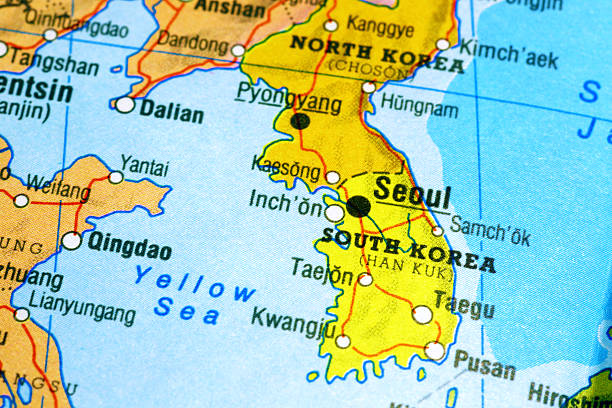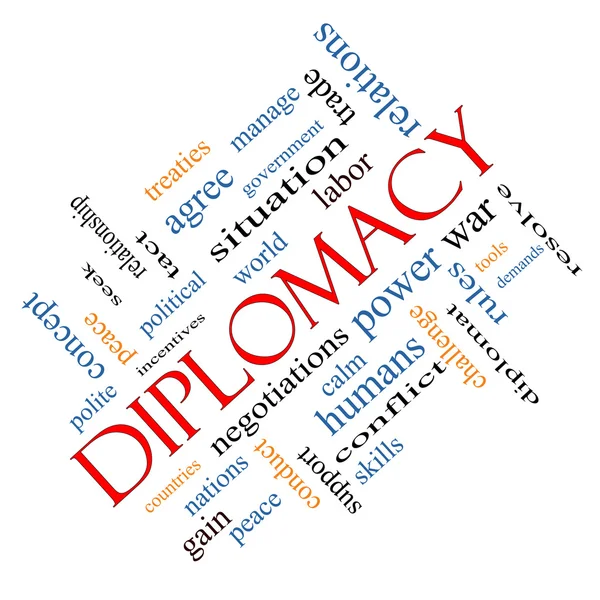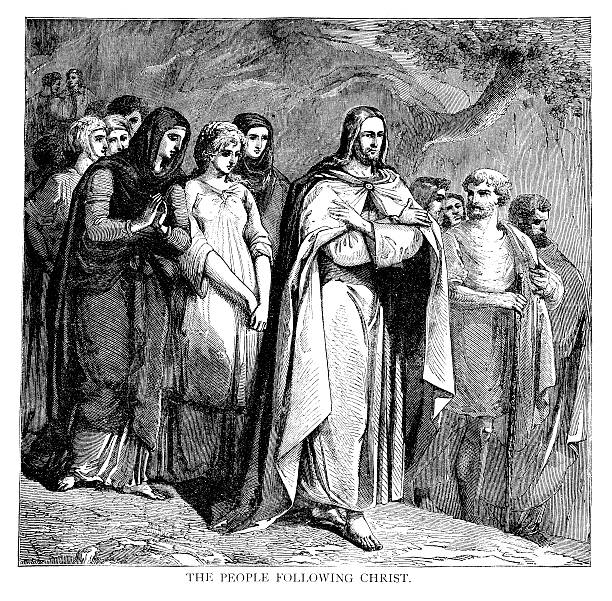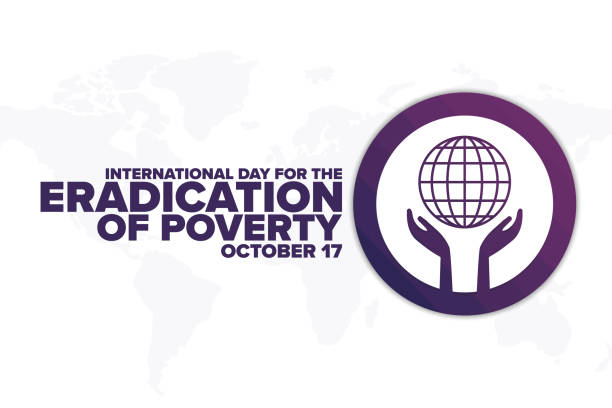
Saturday, October 22, 2022
Trying to Find Peace on the Peninsula

Thursday, October 20, 2022
Synodality, New Image Of Church
A Catholic professor in the Human Development Department of a Catholic University gives the readers of the Catholic Peace Weekly an overview of the Synodalitas Spirit at work in Korea.
"The journey of Synodalitas is the path God expects from the Church of the 3rd millennium." These are the words of Pope Francis in his speech in celebration of the 50th anniversary of the founding of the Synod of Bishops of the World in 2015. The Pope did not intend to suggest any "new" path. The Pope said that synodalitas is the essential way of life of the church itself, so the answer to how the Catholic Church in the 3rd millennium should live and how to carry out its mission of proclaiming the Gospel lies in synodalitas.
The Pope’s wish for a "church living the synodalitas spirit" is reflected in the opening of the Synod of Bishops to be held in 2023. In the smallest gatherings of believers, religious orders, and various groups in the parishes, the "voices of the people" were heard and gathered through the synodal method, especially through the methods of listening and discernment, which were heard in the parishes, and dioceses. All this material was gathered by the bishops in each country.
In addition, the Secretariat of the Synod of Bishops prepared the 'Documents for the Continental Stage' through the process of listening to and identifying these voices from all over the world with those invited from all over the world. There is one thing that runs through this whole process. That is, as the people of God speak out and listen to each other, they see the hope of the people and the hope of the Holy Spirit toward these people.
However, this process is only "one part" of the realization of synodalitas. This means that holding a synod in a parish or diocese is by no means "the end". "We have done our best" is not something that "we just have to watch" what the Asian Bishops Conference decides. Of course, the journey of the Synod will continue until next year's Synod of Bishops.
However, the large and small communities of each local church should not just wait for the final conclusions of the bishops but should consider and discern together the "voices" gathered in their synod journey. Some issues will need to be addressed at the universal church level, while others will be realized "here and now". For these issues, large and small communities of believers united with their shepherds should seek concrete ways to realize them and move on to implementing them.
At this stage of realization, the very "method" experienced in the Synod is applied. Shepherds and believers each move forward to achieve a common goal while doing what they can, and this is what synodalitas is. So synodalitas is often compared to a choir or orchestra. This dynamism takes place at various levels: small communities, parishes, dioceses, and the entire Korean church, and after the publication of "Documents for Continental Levels", it is extended to each continent and the global level.
The 'Documents for the Continental Level' are not simply a collection of documents for continental bishops' conferences. It is to "give back" to all the synthesis of the voices of the people of God around the world through listening and discernment. This is to make the people see the results of their discussions and discernment in the light of the needs to be realized in their place of life in the universal church. And this "giving back" is actually something that has to be done at each stage of the synod. Only then can we move from the stage of listening to the stage of realization, and this process is the synodalitas, the way of life of the Church. Synodalitas is not an event that ends with a synod, nor is it a passing fad but should be the life of the Church.
Tuesday, October 18, 2022
Walking Together As Church
We are all familiar with Jigsaw puzzles. Scattered, usually on a table are hundreds, sometimes thousands of oddly shaped pieces of a picture which the players try to bring to life by continually comparing what they are doing with the object pictured on the box. Those working on the puzzle have the task of reproducing the picture by matching colors, patterns, and shapes, with the pieces before them.
We have discussions, exchange of ideas, and with time, shared effort, determination, and persistence, not only achieving the results intended but also the unintended results of collaboration, cooperation, partnership, and synodality, this last word, at this time is the word which is familiar to the Catholic community wherever it exists.
Can we use this word synodality to help us realize the full promise of Paul's statement in First Corinthians: "All of you are Christ's body, and, each one is a part of it." Synodality means journeying together as the People of God. A way of listening to each individual person as a member of the Church to understand how God might be speaking to us.
Sadly, except for synodality, these secular words are more often used in the business and legal world than in the church. However, are they not the words that describe more accurately and clearly what is meant by becoming an authentic witness of what we are as a church?
Sadness comes when we realize the Catholic Church is often disliked by many outside and not infrequently by those within. We fail in imaging Jesus and consequently, the community is not a valid sign of Jesus' Way. We are not a community, equal partners working toward the building up of Jesus' Kingdom. We use the term community but in most cases, the reality is missing. Jesus meant for us to be a community that is collaborating, cooperating, and in partnership. Working together is not primarily necessary to help one another or to be more effective but as a way of being an authentic witness of what we are as a Church.
The images of salt, light, and leaven although indiscriminately applicable to all Jesus' disciples, are specifically applied to the lay faithful (1). Although the Church has made it clear that the vocation of the layperson is as important as that of the clergy and religious this message is often blurred. They make up the vast number of disciples and have the hardest tasks presented to them with very little help. History makes it clear why this is the case, but we are living in the 3rd millennium. They not only belong to the Church but are the Church under the leadership of the Pope and Bishops (2).
The laypeople are a "sleeping giant" whose time has come for them to take their rightful place within the community. All lay Christians have been called to share Christ's priestly, prophetic, and kingly office, both in the Church and the world but it is the world where they have to excel with their charisms. They are partners in the work given to all of us by Jesus, this is their exalted vocation. By exalting the vocation of the clergy and religious, a tendency exists to minimize the vocation of the layperson. This is a serious error, weakens the laity, and does not energize or give them the desire to participate in the work of the Church.
The ministerial priesthood is in the service of the common priesthood. It is directed at the unfolding of the baptismal grace of all Christians (3). We are all partners working in the vineyard of the world. There is a difference in 'function but not in dignity and holiness'. Here tension exists, for at times there is a stress on the structure of the Church, a sign of our oneness and at other times an acknowledgment of the gifts of God to the individual and the shared roles arising from Baptism and Confirmation. These two truths should not be in opposition but often are.
More important is that in Church law and our tradition the layperson has only a consultative vote in Church deliberations. We should remember, however, that those with authority can choose to share this authority. This is the right that the pastoral worker has. The Church is calling the lay faithful to take an active, conscientious, and responsible part in the mission of the church.
By working together in a loving and uniting relationship, we are being catechized by the very highest form of catechesis. It is within such a relationship that we grow in faith and love together with others. Something happens to us because we are doing Christ's work together. Christ's reason for choosing not to work alone but sending disciples out by twos may help us to appreciate this. We all have certain talents given for the building up of the whole church but we also have acquired certain liabilities that tend to weaken it. Do we not need to know that others are there to help us when weak and are available to help others where strong? It is this dialogue this perspective that teaches more than words and keeps us from losing our composure within the Church.
1 Christifideles Laici, n 15
2 Ibid 9
3 Catholic Church Catechism#1547
Sunday, October 16, 2022
World Poverty Eradication Day (Oct 17)
The Catholic Times in its recent issue introduced us to the Korea Hope Foundation and its work as we approach World Poverty Eradication Day (October 17).
Cheol-soon Lee, Executive Director of the Korea Hope Foundation reminds us: "Poverty is a serious threat to human freedom and dignity." Continual commitment to alleviating poverty and discrimination requires cooperation to foster the "will of self-reliance" of the poor.
The poor, the socially discriminated against, become frustrated when they feel that no one understands them or listens to them. The Korea Hope Foundation is showing concern so that they can stand on their own.
The executive director of the Korea Hope Foundation had a leading role in its beginning in 2005. The role of the Korea Hope Foundation is to "become not only giving money or food to the poor but also becoming a collaborator who fosters their self-reliance through solidarity," said the Director who has dedicated her whole life to raising and resolving human poverty and discrimination, especially women's poverty and discrimination.
"It is impossible for poverty to completely disappear from the world, but efforts to eradicate poverty must continue," she said.
The World Day for the Eradication of Poverty was established by the United Nations in 1992. On October 17, 1987, at the Human Rights Square in Trocadero, Paris, France, a crowd of 100,000 gathered under the leadership of Father Joseph Wresinski to unveil a memorial to the victims of poverty and lack of education. In 1987, Fr. Wresinski launched the International Day for the Eradication of Poverty later recognized by the United Nations General Assembly.
"The majority of the poor suffer from hard work and lack of food, clothing, and shelter. As such, it is easy to see poverty as only a material problem but what it ultimately deprives is human freedom and dignity. That is why we must strive to respect and support the free will of the poor."
Although helping people in poor countries who are materially poor and do not have access to education is often expressed as 'support' or 'aid', Executive Director Lee emphasized that it should be 'cooperation'. The word support or aid means that the strong or the rich give charity to the weak or the poor. It is helping people in poor countries in Asia and Africa to plant farms and create drinking water facilities, and to build schools and dormitories for children who did not have the opportunity to learn. In times of natural disasters and COVID-19, they offered urgent help. What is important is that it induces the participation and cooperation of residents in all these projects.
"It is difficult at first, but it is necessary to instill a sense of accomplishment and a spirit of cooperation that 'we can do it and 'we did it. We have to work together," she added.
The Director urged Korean churches and believers for more interest in and support for the Korea Hope Foundation. "Catholic priests and lay people mainly participated to form the Korea Hope Foundation, and we are helping the poor beyond church boundaries. Please accompany the Korea Hope Foundation, in its work with the poor of the world.
Friday, October 14, 2022
Blunt Talk and Gossip

Wednesday, October 12, 2022
Integral Human Development
On the Catholic website Here/Now an article from the Jesuit Human Rights Solidarity Research Center was reproduced for the readers on a series on Integral Human Development; this is a summary of some of the ideas.
'Integral human development is social teaching of the Catholic Church that explores the conditions and prospects for development that will enable all human beings to 'live more humanely'.
Humans are complex and diverse. Whole human development seeks to use this complexity as a measure of 'human dignity' preparing for material and spiritual life that will enable growth into full, lively human beings.
'Living better' is clearly different from 'having more'. This includes the ability to participate freely in growth, sustainability of the ecological environment, promotion of human rights and justice, values of spirituality, and responsible actions, including honesty.
Integral human development is a universal way of thinking, understanding, and interacting with others and ourselves, and in particular a thoughtful and enduring response to the world's poverty, disease, ignorance, discrimination, exclusion, and oppression.
In 2016, Pope Francis established the Ministry for the Promotion of Integral Human Development, which carries out health and relief activities that require global cooperation, including justice, peace, creation, and preservation, and is focusing more on realizing this task.
A trait of an individual that is buried or unrecognized is a loss to those who possess it, but it is also a loss to all of us. So, everyone should take a closer look at each and every person around them. Integrity of human development is an attempt to clearly reveal and reveal the elements necessary for us to live a full and lively life.
Contrary to popular belief, talents and abilities are a common fruit. Therefore, it is the essence of the human community to care for, support, and help others in their growth.
Louis-Joseph Lebre, who first proposed the concept of integrated human development, said that 'dignity needs' are essential for everyone to make this possible. 'Needs' are basic conditions we must have to live, such as food, work, and housing. If these conditions are not met, people will suffer excruciatingly from poverty and inequality.
Louis-Joseph Lebre (1897-1966) was a French Dominican priest; economist and social activist whose life has been a life of research and struggle for justice. He laid the theoretical foundations for 'integral human development', an important part of Catholic social teaching. He started the labor movement in Saint-Malo, France, in the 1930s with fishing workers suffering from the economic crisis, and in Latin America, he was involved in research and popular movements.
With his experience and research at this time, he proposed a new type of development model, the 'human economy. An "economy that serves people" is "an economy in which as many people as possible can live to the fullest". He is the principal author of Paul VI's Encyclical 'The Development of Peoples' (1967) and was also a major influence on John Paul II's Encyclical 'Social Concern' (1987) and Benedict XVI's Encyclical 'Love in the Truth' (2007).
Lebré added life with dignity to this which includes, for example, 'space'. You need space to rest, socialize with colleagues, and close the door at other times to think and pray. To create yourself and live a healthy life with self-esteem, you must have space.
This space is a material form, but its role is more than an object. Space in this sense is not desirable, but essential. So it is not a 'desire for dignity' but a 'need' for dignity. The dignity-oriented perspective teaches that not only basic needs such as housing and food, but also the inner life and inner realm of a person are essential to human growth. This inner realm is traditionally called the soul, but the content refers to the inner power that animates and shapes human beings.
The Catechism of the Catholic Church calls the soul "the most intimate and valuable spiritual source" of man and the image of man created by God himself. When understood from the soul's point of view, we see that human dignity is an indicator of the depth and mystery of humanity. Human dignity means that it firmly affirms the uniqueness of human beings and human existence, and extends the horizon of humanity beyond the limits of time and body.
Lebré opened a path that not only satisfies basic needs but also awakens human needs from within, leading to integrated growth and development. To live a life full of dignity, we must live from within. Restoring a broken society requires internal renewal, and resisting temptations. Human growth must be holistic and integrated.
The pandemic era we passed through has been harsh and cruel for most of the people except the rich few. The failure of global leadership, especially with privilege and power, makes it clear what kind of people we shouldn't be. Those who showed healing leadership were health care workers, caregivers, cleaning and delivery workers. People who have neither ability nor responsibility should no longer be allowed to lead the community. Showtime is over and we can no longer go back to the pre-pandemic. Before us, are questions about how do we adapt and find happiness in a new age of no return.
Monday, October 10, 2022
Politics destroying our Diplomacy

Big and small dramas that occurred during President Yun Seok-yeol's tour of the UK, US, and Canada last month have provoked a political clash between the ruling and opposition parties. The Democratic Party, arguing that the president's tour ended in a diplomatic disaster, passed a proposal to dismiss the Foreign Affairs minister holding him accountable.
On the other hand, the ruling camp, including the presidential office, accused the media of damaging the national interest by distorting the president's private remarks, and accused MBC, where the first report was published, of defamation. This seems to be based on the perception that the Democratic Party should not be pushed because the Democratic Party is carrying out a political offensive with the cooperation of the media.
There is a saying that 'Politics ends at the water's edge. [Politicians should always present a united front to other countries] In 1947, Arthur Vandenberg, chairman of the U.S. Senate Foreign Relations Committee, emphasized the importance of a bipartisan approach to diplomacy. This means that the political conflict should end at home. A leading Republican politician, he was an isolationist in foreign policy, but actively supported internationalist diplomacy, working closely with the Democrat Truman administration at a time when the United States sought an international role in the post-World War II counter-communist threat. Based on the bipartisan cooperation in Congress, the United States was able to pursue important policies such as the creation of NATO, and furthermore, it was able to establish a liberal international order.
Of course, as political polarization deepens in the United States, a bipartisan approach to diplomacy is increasingly difficult to find, and blind factionalism in politics continues to intensifying instead. The United States may be able to take comfort in saying that it is not our only problem, but it is hard to forget that we are in a much more difficult environment than the United States in diplomacy.
As North Korea seeks to upgrade its nuclear armament, inter-Korean dialogue is completely cut off, and the Korean Peninsula is moving away from the primary interest of the United States due to the Ukraine war. As the US-China competition intensifies, our diplomatic position is narrowing, and even the possibility of a military conflict over the Taiwan Strait is being discussed.
In addition, there are economic difficulties such as the super-strengthening of the dollar, called the “king dollar,” increasing inflationary pressure, weakening of the free trade order, and supply chain reorganization. In addition, new agendas following climate change, health and quarantine, and the 4th industrial revolution are expected to influence the future competitiveness of the country, so an urgent diplomatic response is required.
Diplomacy that focuses on political relations with major powers, is not enough. Even a small country that is geographically far away from us has rare minerals and resources, and if there is even a small market, we should actively strengthen our relationship. Public diplomacy, science and technology diplomacy not only with the governments of other countries but also with private companies and organizations are important. All-out diplomacy is necessary in all directions and on all levels, but the politicization of diplomacy only hinders this. Excessive focus on short-term performance and peripheral emotion-provoking issues, while neglecting the essential task of diplomacy.
The people's minds are very uncomfortable looking at the recent situation in which a sharp political battle is taking place over the subject of the President's tour diplomacy. The approval rating for President Yoon Seok-yeol, who had shown a slight upward trend, fell back to the 20% level right after the tour. That's not to say the Democrats' approval rating has risen. In the presidential election in March, voters' choices were made based on 'who do you hate less', and our politics has not been able to escape from that trend. Isn't it time to break free from the practice of bringing everything into politics, including diplomacy? The international situation we are currently facing is not one in which Korea has the leisure to ignore.



